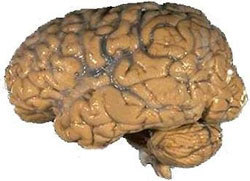Higher prevalence of psychiatric symptoms found in children with epilepsy

Previous studies have shown that children with epilepsy are at increased risk of developing behavioural problems and psychiatric disorders including anxiety, depression, and attention-deficit/hyperactivity disorder (ADHD). In a 2003 population-based study, psychiatric disorders were reported in 37% of children with epilepsy, while children with diabetes and those in the healthy control group were much lower at 11% and 9%, respectively (Davies et al., 2003). Medical evidence, however, has not clearly established when children or teens with epilepsy may be vulnerable to developing psychiatric issues, or how gender influences psychopathology in epilepsy.
Children with epilepsy had a significantly higher frequency of psychiatric symptoms
The current study used data collected by the Norwegian Health Services Research Centre in a 2002 health profile questionnaire. For children in the 8-13 years of age group, there were 14 699 (response rate of 78%) parents who completed the questionnaire which included questions on topics such as sociodemographic conditions, physical and mental health, and psychosocial conditions. To assess psychiatric symptoms, researchers used the parent report of the Strengths and Difficulties Questionnaire (SDQ) which included questions covering four problem domains-emotional symptoms, conduct problems, hyperactivity-inattention, and peer problems-and prosocial behaviour. The SDQ scores were classified as normal, borderline, or abnormal.
Based upon parent's response to the health questionnaire, 111 children were identified with epilepsy (a frequency of 0.8%), of whom 110 completed the questions included in the SDQ (64 boys and 46 girls). Researchers found that children with epilepsy had a significantly higher frequency of psychiatric symptoms (38%) compared with healthy controls (17%). Boys had a higher risk of psychiatric symptoms than girls did in both the epilepsy population and in controls.
Additional factors
Additional risk factors were low socioeconomic status (living in a single family home, family income below poverty limit), having another chronic disease (asthma/diabetes) and epilepsy. However, these independent risk factors contributed with different prominence (odds ratio) to psychiatric problems in boys and girls in the epilepsy population. Having or having had epilepsy was a much stronger risk factor of developing psychiatric problems in girls, whereas boys with epilepsy seemed almost as affected by low socioeconomic status as having epilepsy. The authors say the reason for this remains unclear, however a previous study found a more negative attitude towards having epilepsy in girls than in boys.
Further results showed that 33% of children with epilepsy who were 8-9 years had a borderline/abnormal SDQ score compared with 18% of healthy children of the same age; 41% compared to 16% in the 10-13-year-age group. "We chose to divide the groups at the age of 10 years as this is the start of preadolescence. The wish 'to be like the others' and to participate in different activities as an equal may be issues of particular importance for children with epilepsy," said Dr. Kristin Alfstad of the National Centre for Epilepsy at Oslo University Hospital in Norway, and lead study author. Analysis also showed an increased risk of psychiatric problems for girls with epilepsy in the 10-13-year-age group.
The current study findings confirm the psychiatric co-morbidity of epilepsy reported in prior studies. The authors noted that a lack of a standard age groups and methodology differences makes comparison of these studies difficult. "Multiple risk factors contribute to the high prevalence of psychiatric symptoms, differently in boys and girls, it seems," concluded Dr. Alfstad. "Identifying high risk groups may help clinicians who can implement interventions that prevent more serious psychiatric problems."
See also: The clinical impact of pharmacogenetics on the treatment of epilepsy;
Source: Epilepsia



















